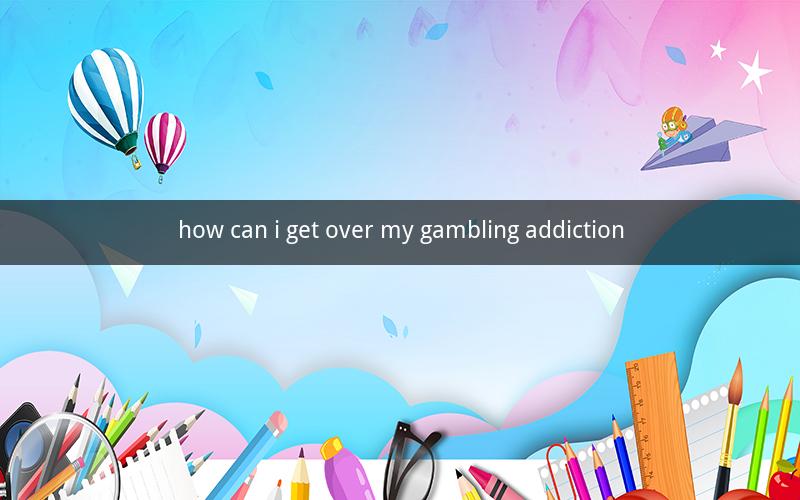
Table of Contents
1. Understanding Gambling Addiction
2. Recognizing the Signs of an Addiction
3. The Psychological and Social Impact of Gambling Addiction
4. Strategies for Overcoming Gambling Addiction
- Seeking Professional Help
- Developing a Support System
- Identifying and Avoiding Triggers
- Establishing a Budget and Financial Management Plan
- Mindfulness and Stress Management Techniques
5. The Role of Technology in Overcoming Gambling Addiction
6. The Importance of Self-Reflection and Acceptance
7. The Journey to Recovery: Testimonials and Success Stories
8. Preventing Relapse and Maintaining Sobriety
9. Legal and Ethical Considerations in Treating Gambling Addiction
10. Community Resources and Support Groups
---
1. Understanding Gambling Addiction
Gambling addiction, also known as compulsive gambling, is a behavioral disorder characterized by the inability to control the urge to gamble, despite negative consequences. It is a complex condition that often involves psychological, social, and environmental factors. Understanding the nature of gambling addiction is the first step in overcoming it.
2. Recognizing the Signs of an Addiction
Identifying the signs of a gambling addiction is crucial for early intervention. Common signs include:
- Spending increasing amounts of time and money on gambling activities.
- Feeling restless or irritable when attempting to cut down or stop gambling.
- Repeated failed attempts to control, cut back, or stop gambling.
- Continual gambling despite knowing the serious negative consequences.
- Borrowing money or selling possessions to finance gambling.
3. The Psychological and Social Impact of Gambling Addiction
Gambling addiction can have profound psychological and social impacts. Psychologically, it can lead to feelings of guilt, shame, and depression. Socially, it can strain relationships, lead to financial problems, and even result in legal issues.
4. Strategies for Overcoming Gambling Addiction
4.1 Seeking Professional Help
Professional help is essential for overcoming gambling addiction. Therapists, counselors, and psychologists can provide personalized treatment plans that may include cognitive-behavioral therapy (CBT), dialectical behavior therapy (DBT), or other evidence-based approaches.
4.2 Developing a Support System
A strong support system can significantly aid in recovery. This can include friends, family, or support groups like Gamblers Anonymous. Sharing experiences and receiving encouragement from others who understand the struggle can be incredibly beneficial.
4.3 Identifying and Avoiding Triggers
Identifying triggers that lead to gambling is crucial. These may include certain places, people, or situations. Avoiding these triggers can help prevent relapse.
4.4 Establishing a Budget and Financial Management Plan
Creating a budget and managing finances carefully can prevent the temptation to gamble. Setting strict limits on spending and avoiding credit cards can also be effective.
4.5 Mindfulness and Stress Management Techniques
Mindfulness and stress management techniques, such as meditation and yoga, can help manage the urge to gamble by promoting relaxation and self-awareness.
---
5. The Role of Technology in Overcoming Gambling Addiction
Technology can be both a friend and a foe in the fight against gambling addiction. While online gambling platforms can exacerbate the problem, there are also apps and websites designed to help manage and overcome addiction.
6. The Importance of Self-Reflection and Acceptance
Self-reflection is a key component of recovery. Understanding the underlying reasons for the addiction and accepting personal responsibility are critical steps in the healing process.
7. The Journey to Recovery: Testimonials and Success Stories
Hearing testimonials and success stories from others who have overcome gambling addiction can be incredibly motivating. These stories provide hope and demonstrate the possibility of recovery.
8. Preventing Relapse and Maintaining Sobriety
Preventing relapse involves ongoing vigilance and commitment. Maintaining sobriety requires continuous effort and the development of healthy coping mechanisms.
9. Legal and Ethical Considerations in Treating Gambling Addiction
Treating gambling addiction involves ethical considerations, including confidentiality and the appropriate use of treatment methods. Legal aspects, such as reporting to authorities if necessary, should also be considered.
10. Community Resources and Support Groups
Community resources and support groups offer a wealth of information and assistance. These can include local clinics, hotlines, and organizations dedicated to helping those with gambling addiction.
---
Questions and Answers
1. Q: What is the most effective treatment for gambling addiction?
- A: The most effective treatment often involves a combination of therapy, support groups, and lifestyle changes. Cognitive-behavioral therapy (CBT) is particularly effective.
2. Q: Can gambling addiction be cured?
- A: While there is no cure for gambling addiction, it can be effectively managed through treatment and ongoing support.
3. Q: How long does it take to overcome gambling addiction?
- A: The duration of recovery varies from person to person. Some may experience immediate relief, while others may need long-term support.
4. Q: Can family members of a gambler be affected by the addiction?
- A: Yes, family members can be significantly affected by a loved one's gambling addiction, both emotionally and financially.
5. Q: Is there a genetic component to gambling addiction?
- A: Research suggests that there may be a genetic predisposition to gambling addiction, although environmental factors also play a significant role.
6. Q: Can medication help treat gambling addiction?
- A: Medication is not typically used to treat gambling addiction, but it may be prescribed to address underlying mental health issues.
7. Q: How can I help a friend who is struggling with gambling addiction?
- A: Offer support, encourage them to seek professional help, and be patient. Avoid enabling their behavior.
8. Q: Are there any alternative treatments for gambling addiction?
- A: Yes, alternative treatments include mindfulness, yoga, and art therapy, which can complement traditional therapy approaches.
9. Q: Can I recover from gambling addiction on my own?
- A: While it is possible to recover on your own, seeking professional help and joining support groups can significantly improve the chances of success.
10. Q: What should I do if I suspect I have a gambling addiction?
- A: Acknowledge the issue, seek support, and consider seeking professional help. Early intervention is key to successful recovery.